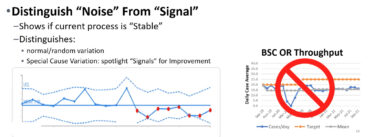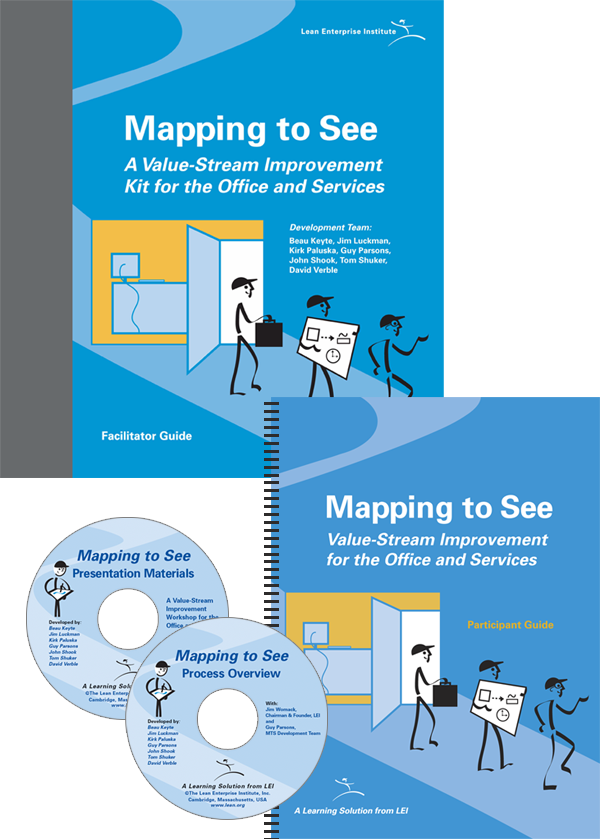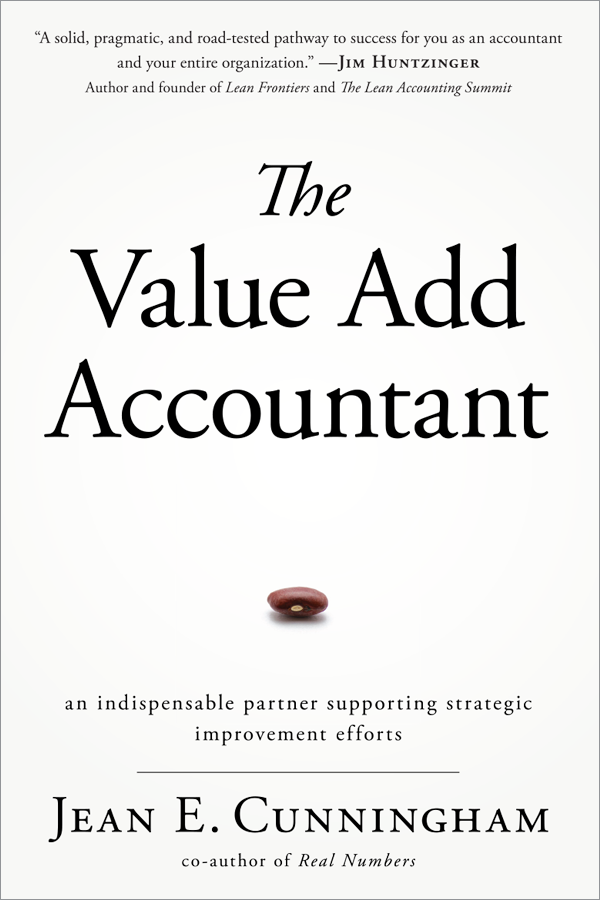It’s a curious fact that very few books about lean address the topic of finance. Questions about lean’s financial benefits are often the first that leaders skeptical about launching a transformation ask, so it’s a wonder why this key aspect is seldom acknowledged. Jean Cunningham, lean accounting pioneer, and co-author with Orrie Fiume of the Shingo Research Prize-winning book Real Numbers, now weighs in on this gap in lean finance, along with suggestions for how to bridge it at your company.
Why do most lean books skirt the topic of finance?
I think there are two main reasons. First of all, there is a fundamental problem with a lot of the financial information that companies look at, in that many people don’t understand the financial language. So whether it has to do with lean results or not, there are a lot of people that are not familiar with reading a balance sheet, an income statement, a cash flow statement, etc. – and so therefore, if you’re telling the story of a lean transformation operationally, it’s very hard to understand what the information is telling you.
The second reason is more fundamental to a lean transformation. A lot of the improvements that are made in companies are to eliminate activities from happening that we don’t want or need – in the lean community we call that waste. But that often takes the form of “‘stop’ language:” stop expediting, stop producing too much before it’s needed, stop building an inventory, etc. But accounting and financial reports typically only track the activities that DO happen. Thus, when someone demands to see the cost savings of lean on a report-out, they’re basically saying, “Where’s the line that says LEAN SAVINGS?” So because of the nature of accounting and finance and cost analysis, it’s difficult to talk about the financial impact of lean.
Is there any way to turn the information that most accounting reports do have into an impact statement?
Potentially. We can use trends and relationships present in the data to help us link lean to our utilization of resources – whether they be people, equipment, facilities, etc. By studying the relationship of one element to another, we can sometimes see financial improvement. It takes some analysis and support: depending on what you want to measure you may need to talk to your shop floor manager, Marketing, Sales, Product Development, and others to put some key metrics in place that will help us visualize those shifts in relationships that are hard to see on a financial statement.
In a previous interview, you spoke about the importance of a strong relationship between Lean and Finance. That’s clearly of critical importance here. If such a relationship doesn’t exist, how can you create one?
One of my best tips is to draw accounting and finance into the ongoing lean efforts. If you involve them in that, they will start to feel like they are truly a part of the transformation and that lean is there to help them too. In this circumstance there’s a question of WHO in accounting you want to invite, because of the variety of roles. You may want to draw in people with titles like Controller, Cost Analyst, or Financial Analyst, rather than an Accounts Payable clerk or the like. You want people with more analytical roles to help you and spread what they’re learning about lean throughout the finance department.
Given that difference, why do leaders still have trouble grasping the fact that lean does have an ROI, just not an immediately obvious one?
I see it as a misunderstanding due to a lack of proper education on lean. Lean is not some type of magic or revisionism; it’s actually a way to get the best possible business results. Over time, in the bigger picture, leadership should expect and will see a return on investment – whether it’s calculated from a traditional financial point of view (quantitative) or the concept of a benefit from the work and effort we put into a transformation (qualitative). It’s a two-way scope.
So since the books won’t tell us, if you would be so kind: how DO you explain the financial benefits of lean?
If we’re talking qualitatively, we can point out the indirect benefits lean has given us, for example in terms of understanding the customers’ and employees’ needs, improving workplace safety, etc.
If we’re speaking quantitatively, I always recommend breaking down the benefits into five areas of financial improvement. One of these, for example, is probably fairly obvious: cost reductions. Cost reductions in a lean transformation come in the form of waste elimination, so those are easy to connect. But that’s only one of the five areas of lean’s financial improvement.





